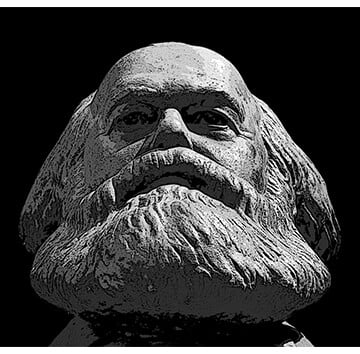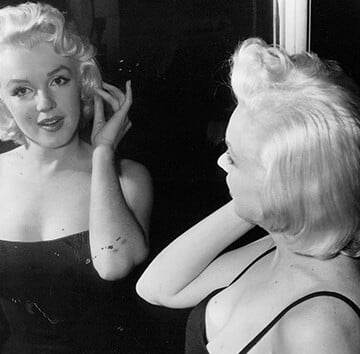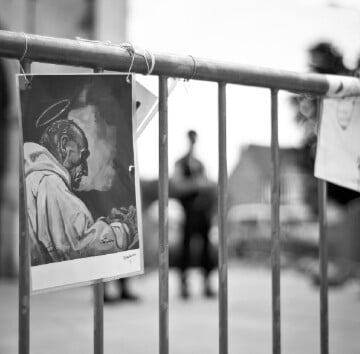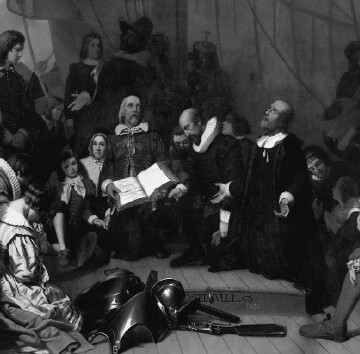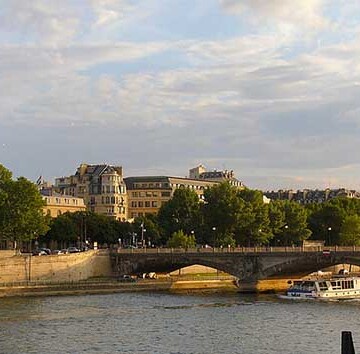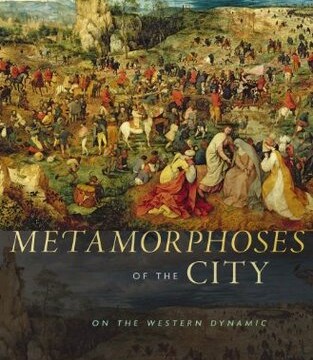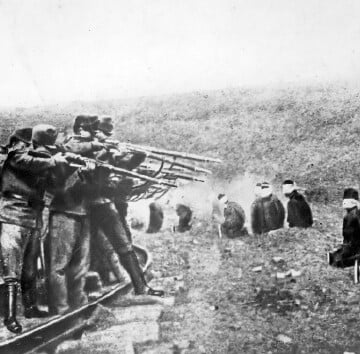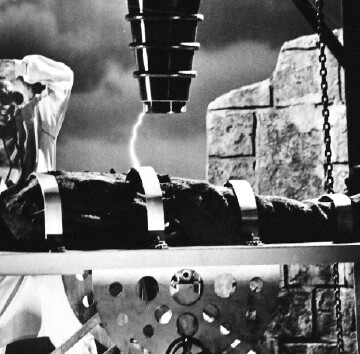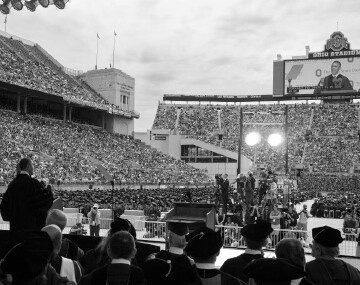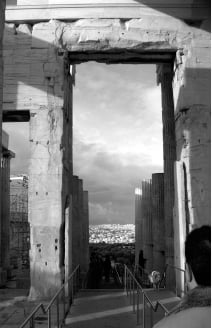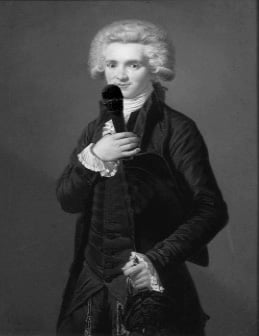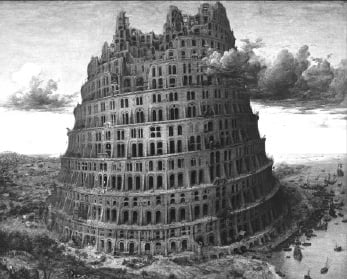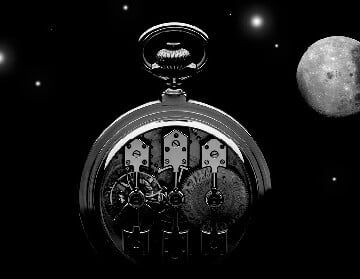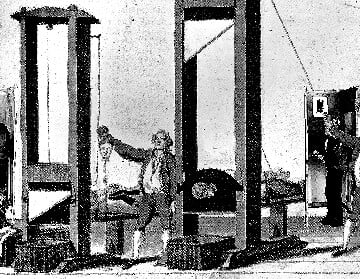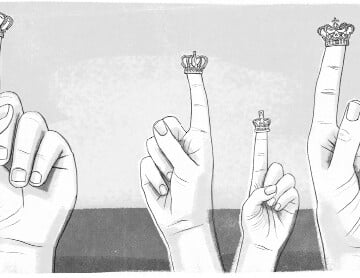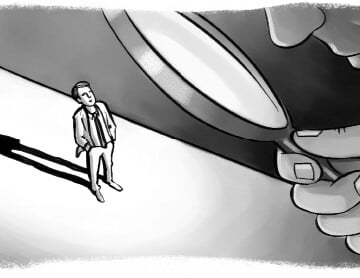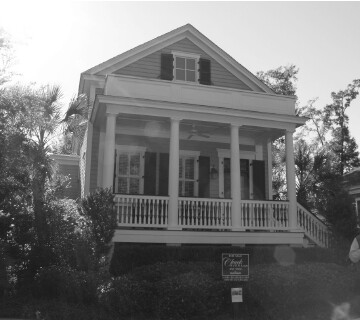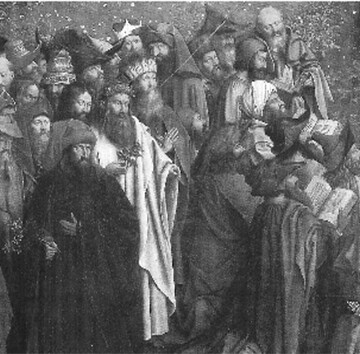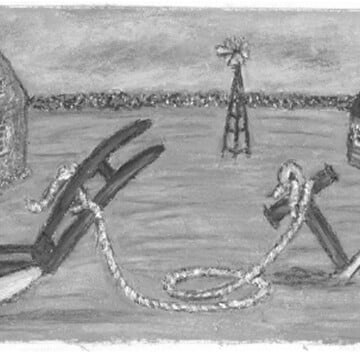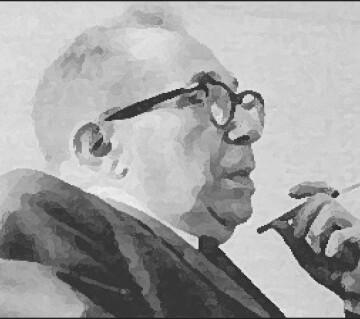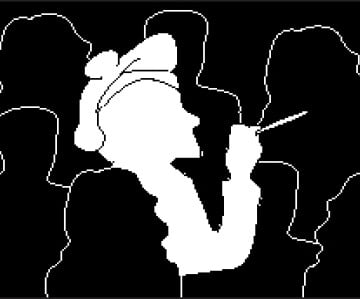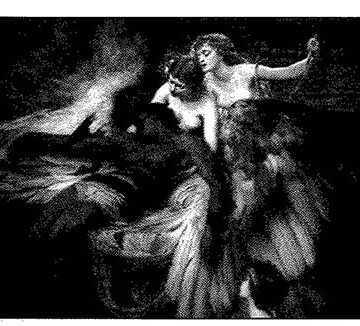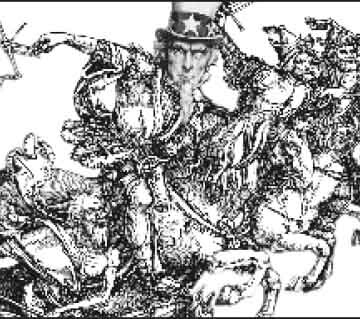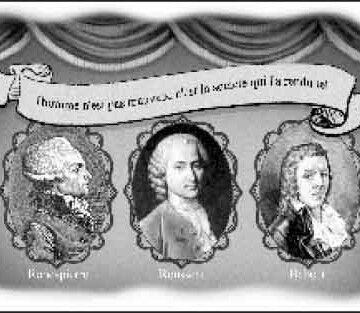Is Marxism Dead? If the average citizen of a Western society were asked that question, it seems to me he would readily answer that Marxism is indeed a very dead idea surviving only in improbable boondocks like North Korea or Cuba, and even there losing ground, as has been happening in the last great country...
Author: Claude Polin (Claude Polin)
Love Thyself: The West’s Fatal Flaw
I am told President Trump has said that “The fundamental question of our time is whether the West has the will to survive.” In the September issue of Chronicles, several authors, such as Aaron Wolf, either directly or indirectly dealt with this same crucial question. What follows is a mere snippet of additional reflection. What...
The Meaning of Macron—and the “Right” in the West
“He is on the right.” “That party represents the right.” These are standard expressions that are familiar today in the West, including France. But as usual, few understand or even care about the precise meaning of the word. Most people either hurl it as an insult, or claim it as a virtue. For example, after...
The Quintessential Democratic Politician
What follows is an attempt to portray not the typical statesman, as he repeatedly appeared in the course of Western history up to yesterday, but the average professional politician of our times, the man (or woman) whose chosen trade is to govern his (or her) fellow citizens. Any ruler must somehow be subordinate to the...
Trump Election: Democracy Versus Populism
There are at least three striking facts in Mr. Trump’s election. First there is the geographic distribution of voters: Roughly speaking the East and West coasts voted against Mr. Trump. Then there is the charge leveled at him: He’s a “populist,” whereas Mrs. Clinton is a faithful democrat (no pun intended), a charge supported by...
On Terrorism in the West Today
Every time a bomb explodes in the West it is a boon for journalists. They photograph weeping people, tell us how implacable the government will be, and, without breaking stride, warn us that more is likely to come. But so far I have never come across any serious reflection on the rationale for the bombings,...
An Essay on the State of France
What follows is not an anthropometric description of France, but neither does it reflect the fancy of the author: It is what one can see of France from a certain distance, which blurs the finer details but allows the main features to stand out. When looking at the Great Wall of China from a certain...
The Agony of Nations in the West
European history since the fall of the Roman Empire may be regarded as the slow forging, as if by a hidden hand as well as by human passions, of these particular forms of human collectivities called nations. After several failed attempts to reconstitute the Roman Empire, Europe emerged out of the Middle Ages as a...
Will the Middle Class Survive?
Ever since human societies became a clear and definite field of inquiry, which for Westerners means ever since Greek antiquity, current wisdom holds that the best of imperfect, nonutopian—i.e., viable—human societies have always been those in which predominated what came to be dubbed a “middle class.” Though commonly used, the content of the term remains...
1865: The True American Revolution
The standard opinion has it that, ever since they set foot on the new continent, the English settlers felt they were one people, Englishmen united by their common language, common origins, common enemies, so that it was only natural that their independence, once achieved, should lead them to the framing of one new national body,...
Charlie Hebdo: A Christ Befitting the Modern West
Paris, January 7, 2015: Two men invoking Allah enter the office of a satirical magazine and shoot its staff, employees, and two policemen. Two days later, also in the name of Allah, a black killer opens fire on a kosher supermarket, bringing the total to 17 dead. A planetary uproar follows. Mourners, presidents gather in...
Is Immigration Our Fate?
Political correctness has it that immigration is a perennial phenomenon in Western countries. This is preposterous. Immigration as we know it today is an extremely recent phenomenon. The United States has always been a nation of immigrants, they say. This is just plain ridiculous. A small group of people leaving their country to found their...
Insecure Liberalism
As I was reading my monthly Bible—guess what that is—I came across an enthusiastic review of a book, written by a French political philosopher, Pierre Manent, entitled Metamorphoses of the City. I rushed to buy a copy. The book purports to be an account of the evolution of European political systems from the days of...
The Quintessential Democratic Politician
What follows is an attempt to portray not the typical statesman, as he repeatedly appeared in the course of Western history up to yesterday, but the average professional politician of our times, the man (or woman) whose chosen trade is to govern his (or her) fellow citizens. Any ruler must somehow be subordinate to the...
World War I and the Modern West
History may be a series of more or less contingent events, whose only connection to the preceding or following ones is that men react to what others do. Such events are basically disjointed because each one depends on the more or less unpredictable behavior of those men who are able to attract enough followers to...
Playing at God
Is the development of the modern sciences and related technologies a good or a bad thing? The question is by no means a recent one. Not only was it raised at the inception of such development by its very promoters, like the humanist Rabelais, but it dates back to the beginnings of Western civilization, since...
Suicide of the West (Revisited)
Fifty years ago James Burnham warned Westerners: Trying to come to terms with communism instead of resolutely fighting it amounts to committing suicide. Whether the communist ideology is dead or still alive under a new guise remains, in spite of current opinion, an open question, but in any case only the blind or the deceitful...
You Shall Be as Gods
“It’s awesome”: A young relative of mine loves the word and uses it profusely. Since she applies it to a restaurant or a vacuum cleaner she finds extraordinary, I doubt she realizes its real meaning. This is a typical instance of the degeneracy of a word caused by the search for quick superlatives, and mainly...
Moderate Islam?
“Teachers who teach Western education? We will kill them! We will kill them in front of their students and tell the students to henceforth [sic] study the Koran,” declared Abubakar Shekau, leader of the Nigerian Islamist group Boko Haram, which killed 46 students in a boarding school on July 6 (Time, July 19). Willingly or...
Paganism, Christianity, and the Roots of the West
I remember being taught as a student of the considerable, if not unbridgeable, gap between the polytheistic pagans and the monotheistic Christians who, though they may have borrowed from their predecessors, eventually delivered a civilization completely of their own. The roots of the West were supposed to lie in Christianity, which either invented a new...
The Press: Hidden Persuasion or Sign of the Times?
Modern Western societies are commonly called industrial or democratic societies. They might just as well be named mass-communication societies, for the average citizen is supposed to be informed about what goes on in and around the city whose welfare and leadership he is supposed to assume. As the medium through which comes the data about...
Democracy: The Tower of Babel
Democracy was born as a protest against what was felt to be an oppression of man by man, a rebellion against some men having the nerve to behave as if they had a natural right to command their fellow men—whether to enslave them, to lead them, or to tell them what to think and believe. ...
Classical Liberalism and Christianity
If asked to choose one word to define the basic creed and catchword of Western modernity, I would not hesitate: That word would be freedom, provided one understands that, for a modern, there can be no freedom where there is no equality. If endowed with a minimum capacity to express himself, the average citizen would...
Why Democracy Doesn’t Work
Critical stands against democracy, when not simply ignored or mechanically rejected as mere fascist outbursts, are usually met with a supposedly wise objection: You may be right, except that you’re targeting an imperfect form of democracy. Thus, Tocqueville never addressed the principle; he decreed democracy would perfect itself as it matured. This is why I...
The Inner Logic of Civil Rights
In 1861 U.S. President Abraham Lincoln launched a war of conquest against the South, and legend claims it was all for the abolition of slavery, officially declared by the Emancipation Proclamation of 1863. Yet exactly 101 years after the Emancipation Proclamation, Lyndon B. Johnson, President of the forcefully reinstated Union, signed the Civil Rights Act...
Christian Democracy? No Such Thing
Everyone hails democracy as the government of the people, by the people, and for the people, but very few realize—or dare realize—that democracy actually represents one of the most perfect forms of tyranny, because it is one the average citizen is loath to acknowledge as such. It is indeed very simply a matter of taking...
Are We Still Entitled to Some Privacy?
More often than not, current events offer an opportunity for meditation. This is the case today: The friends of a politician turned international financier, now to be tried for rape, have rallied round him, claiming his privacy has been invaded. Though in this case the claim is downright preposterous, by appealing to the right to...
The Death Wish of the West
Speculation about the possible decline of the West has been going on for the better part of a century, if it may be considered as originating in Spengler’s or Valery’s famous reflections. Obviously, the fratricidal nature of World War I triggered pessimism, but I think the very nature of our societies constitutes a reason for...
In Defense of Private Property
For centuries, the propensity to personal ownership has been considered one of the most elementary and natural features of human nature. Criticism of private property is nothing recent, either, but has turned out to be extremely commonplace in modern times: Communism haunts European consciences as the famous specter haunted Hamlet. But it is only the...
The Necessity of Christianity
To prove the necessity of Christianity in a few paragraphs would be an entirely foolish—if not preposterous—undertaking, were it not that volumes are not necessary to present a simple idea. By “simple” I mean able to be stated with brevity at the cost of some bluntness, rather than easy to understand fully enough to make...
Authentic Communities
Deep in the heart of man there is a need imprinted by nature that may very well be his basic difference from all other animals: Being a thinking one—i.e., an animal capable of self-awareness—man needs to be something meaningful in his own eyes, something which deserves to exist, possessed of a certain dignity. All men...
The Demise of Human Understanding
Who in modern Western society has not heard of that category of citizens honorably known as intellectuals? They profess to be the thinking part of the nation, the people whose special calling is to ponder public or private matters. Not possessed of a particularly low opinion of themselves, they even lay claim to a spiritual...
The Enigmatic Professor Strauss, Part II
Where are today’s Platos and Aristotles? On this question, for once, Strauss announces that he “won’t beat around the bush in any respect”—and, actually, he doesn’t. As he states flatly: “Since a very, very early time, the main theme of my reflections has been what is called the Jewish question.” His interest does not stem...
The Enigmatic Professor Strauss, Part II
One can safely claim that Leo Strauss was an enigmatic man, since he prided himself on being enigmatic. He raised the art of double-talk to the dignity of a requisite for any serious philosophizing: For him, it took stupidity or insignificance for a (self-proclaimed) philosopher to be able to afford to write or speak in...
The Idea of Socialism
The received wisdom today seems to be that, with the downfall of Soviet communism, socialism has lost its pungency. Not only has Marxism proper reputedly crumbled, together with the Berlin Wall, but the somewhat watered-down type of socialism that survives Marxism has been forced to come to terms with its archrival, economic liberalism, which is...
Ariadne’s Ball
There are innumerable topics of historical study, but an historian has, I believe, to choose among three styles of history. The first, seemingly the most popular among academics these days, concentrates on facts (i.e., physical evidence). The difficulty with this history is its avowed loathing of any interpretation of the facts by the historian; the...
Democracy: The Enlightened Way
Before American readers embark on this inquiry into the particular democracy that was born in France with the French Revolution, I should warn them that they had better be prepared to enter a world of ideas so removed from reality as to make it almost impossible to believe there were people who actually took those...
A Fight for French Sovereignty
After years of running smoothly along its predetermined path, the drive toward a United States of Europe seems to have lost wind, especially in France, the place it more or less originated. It looks as if another trend is gathering strength in the country; it points in exactly the opposite direction, as if it were...
Riots in the Suburbs
By now, most have heard—sometimes with sorrow, sometimes with delight—of the latest fashion in the working-class suburbs of France: setting fire to cars at night. There is a lot more to this than a nocturnal rite for rival juvenile gangs. It is probably exaggerated to forecast a civil war: Two sides are necessary to make...
Conservatism as Medicine
What are the basic tenets of modernity? What is the mind and temper of modern man? I would feel rather foolish to try to reply in a few paragraphs if I did not think that the spirit of modernity boils down eventually to only one idea that reappears constantly under an indefinite variety of guises....
Tocqueville’s America and America Today
At the time of Alexis de Tocqueville’s writing, the French Revolution still loomed over minds and, with it, memories of a bloodbath and of a new kind of tyranny. The American Revolution seemed to offer grounds for rosier hopes about democracy. Convinced that there was no turning back to the old days, Tocqueville set about...
America in Europe, Europe in America
What the Europeans call America—that is, Canada and the United States—was fostered by what we usually refer to as Europe. If men and women had not left the Old World, there would not be any New World as we know it. Hence, any investigation into the relationship between Europe and America must begin with an...
The French Revolution in Three Acts
Taken as a whole, the French Revolution, like any other historical event, may be understood in many ways. Excluding material or circumstantial causes, I see it as a sort of drama, each act of which is performed by characters—sometimes the same, sometimes different—who all, driven by some idea, strive to achieve a certain goal that...
